Building an eCommerce site with WooCommerce is easy and customizable. WooCommerce has hundreds of plugins, extensions, and services available that are compatible with WordPress. Moreover, these WooCommerce plugins and extensions are each made for adding specific functions to your eCommerce website. Most of these plugins are available for free at the WordPress directory but many are also available by third-party sites.
To run a smooth and well-managed online store, you need to make sure that your themes, plugins, subscriptions, and hosting, etc are compatible with each other and secure. Many sites made on WordPress WooCommerce are targeted by malicious malware, hackers, and viruses due to poor management, unsafe plugins, and extensions from third-party sites and passable hosting.
You may have these questions in mind that “how secure is WooCommerce?” or “is WooCommerce secure?“. Although standard WooCommerce security is available, there are a few WooCommerce security issues that require additional plugins to be solved. These plugins protect against firewalls, admin login attempts, and malware. Consequently, a poorly protected online store would result in lesser traffic, decreased sales, and rankings.
How To Improve Security of A WooCommerce Site?
As we have discussed the type of security issues that you can face with a WooCommerce website, now we are going to tell you how you can solve these problems. To sum up, there are two ways to deal with WooCommerce security issues:
1. Security Through Small Tips
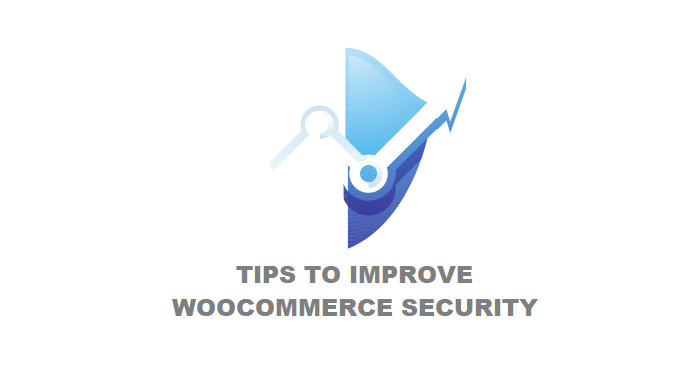
WooCommerce is a popular plugin for WordPress and thus is the subject of many malicious brute force attacks and hacks. Luckily, its popularity has also made it easier to solve security issues with the help of small and easy tips available on the internet. You can also implement different security measures to prevent such attacks from happening in the future.
10 Tips To Improve WooCommerce Store’s Security
- Choose Trustworthy Hosting
- Put A Limit On Login Attempts
- Don’t Use Default Username “Admin”
- Create Strong Password
- Validate Users by 2FA
- Login Using Email (Instead of Username)
- Create Website Backup
- Rename Login Page
- Install SSL Certificate
- Adjust FTP directories
1. Choose Trustworthy Hosting
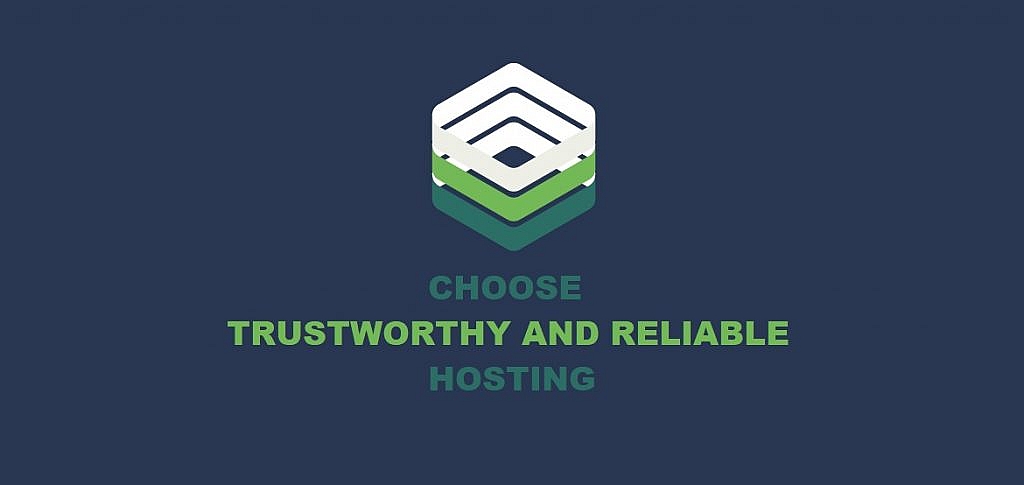
A hosting service is used by many WooCommerce website owners. It has been estimated that around 40% of WooCommerce sites hack attempts are due to poorly managed hosting providers.
A good hosting provider should be compatible with WordPress and WooCommerce, should have server-level security, and should also support the latest updates and plugins. Hosting providers are available in two categories; generic and managed. Managed hosting services are equipped with advanced security measures that can identify threats and block them, whereas shared hosting results in poor management and security risk.
It is also necessary that all information be protected and encrypted. A good hosting service will also provide you with additional firewalls, protect admin login, and support PHP and MySQL. Thus, instead of choosing a cheap hosting provider that will result in a hacked server, invest in managed hosting and enjoy quick updates and top-notch security.
2. Put A Limit On Login Attempts
One of the ways WordPress WooCommerce security is tested is by brute force attacks. Hackers try to login to your WordPress admin account by trying different combinations of passwords with the help of bots. Therefore, if the login attempts are left to unlimited, they would easily be able to hack into your account.
Thus, by limiting the number of login attempts, you can secure your account and the hacker would be denied access. This feature is easily available by uploading WooCommerce security plugins which limit authorization and protect your website. This solution is also considered the first line of attack and level 3 security in a brute force attack.
3. Don’t Use Default Username “Admin”
Brute force attacks by hackers and bots require them to guess the username and password and gain access to the admin account. One of the most common errors by administrators is using “Admin” as their username. As a result, this makes the job immensely easy for hackers as we have done half of the work for them.
This is also the most common security measure taken by administrators to protect their accounts and website. By using a unique username and a strong password, you can prevent brute force attacks easily.
To do this, you need to make a new admin account. Log in to the WordPress admin dashboard, go to users, then add new. Make a new account with a strong username and password and set as “Administrator”. You also need to delete your previous admin account and don’t worry, all admin-associated information will be transferred to your new account.
4. Create Strong Password

We are creatures of habit, and thus having just one password for all accounts is something we prefer. And this is also the reason why it becomes so easy to guess our username and password by brute force attacks and hack our accounts.
When creating a WordPress WooCommerce admin account, you need to make sure that the password you choose is unique and strong. It is easy to generate a strong password with the help of WordPress “Better Passwords” built-in feature.
You can also use a combination of uppercase, lowercase, symbols, numeric characters, alphanumeric characters, and acronyms to create the perfect strong password. This might seem like a weak solution against WooCommerce security issues, but it makes a huge difference.
5. Validate Users by 2FA
One of the most promising prevention steps against brute force attacks is using 2-Factor Authentication. This causes the user to login to their accounts by using 2 authentications. For instance, the first one is their regular password and the second could be facial scan, fingerprint, or a code sent to their emails or phones.
Moreover, this makes the job harder for hackers as they don’t have access to your mobile devices. This authentication technology is being employed by many online service providers as it increases security by adding layers to the login procedure.
This also greatly reduces the chances of your WooCommerce site being hacked as the passcode is generated in real-time for single-use, and is viable for a few minutes only.
6. Login Using Email (Instead of Username)
Security issues with WooCommerce WordPress include brute force attacks, where finding out the username is half the work, and we make it too easy for hackers. Our usernames are usually set by default and are not unique, thus it becomes very easy to hack into our accounts.
By installing the WP-Email Login plugin, you can enable the option of both a username and email, to log into your account. This is beneficial because it is easier to remember your email and emails are more personalized and unique than a username.
An email address also has variations and usually consists of a combination of characters which is harder to guess and hack into.
7. Create Website Backup

WordPress eCommerce security is a must when you are running an online store on WooCommerce. An eCommerce store deals with sensitive information such as credit cards, debit cards, bank transfers, payments, etc. In case of a security breach, your data must be protected and backed up.
WooCommerce security issues require you to install plugins that enable daily backup on your website, thus under any circumstances, you can easily restore your website.
Many WooCommerce security plugins also have a real-time backup available, which saves the information as soon as a customer enters his confidential information or order. This not only backs up your website but also protects customers and revenue. A plugin that stores data in encrypted form is even more preferable as in the case of a WooCommerce site hack, the information would still be protected.
8. Rename Login Page
All sites made on WordPress have the same login page URL, for example, it would be www.name.com/wp-admin/ or wp-login.php. The same login page URL makes it easier for hackers to find your site and break-in.
Therefore, by changing the login page URL, you can prevent brute force attacks, hide that you are using a WordPress site, and stop malicious hackers. You can also easily rename your login page URL with the help of WordPress WooCommerce security extensions.
9. Install SSL Certificate
Installing an SSL certificate is the most common and effective measure against WooCommerce security issues. An SSL certificate enables “ Force Secure Checkout” on all pages related to the checkout process. Thus, this allows all sensitive information passed between the customer and the user to remain encrypted and protected.
You can easily add an SSL certificate by a hosting provider or get them for free. Once it is installed, your page URL will change from HTTP to HTTPS.
Now, you must be thinking about how to put the SSL certificate security seal on WooCommerce? After installation, go to WooCommerce, then settings – advanced, and enable “ Force Secure Checkout”, and prevent hackers from getting access to confidential data.
10. Adjust FTP directories

FTP refers to “file transfer protocol”, which is a shared hosting environment used for transmitting files between computers over the internet. As sensitive information is passed through an eCommerce site, you must protect or limit your site’s FTP.
If you don’t adjust FTP directories, then any hacker is able to break in, upload or modify existing files on your WordPress directory. Thus, you can limit the write access on your FTP account only on wp-content, wp-admin, wp-includes, and root directory.
Most of these tips might seem too small to make a difference, but by enabling them all, you can add multiple layers of security to your WordPress WooCommerce websites and enjoy safe and secure data transfer.
2. Security Through Plugins

WooCommerce security issues are easily taken care of with the help of WordPress WooCommerce security plugins. Therefore, to provide a safe and secure platform for your customers and making sure your site is not vulnerable, you can download security plugins that provide advanced monitoring and firewall to keep your site out of harm’s way.
5 Plugins to Secure Your WordPress WooCommerce Site [Security Plugins]
WooCommerce security plugins are a better way to combat hidden threats, malware, and prevent hackers. Moreover, a good WooCommerce security extension would scan your site routinely, have advanced firewalls, and backup data. Below are some of the best WooCommerce security plugins reviewed to make it easier for you to make a choice.
1. Wordfence
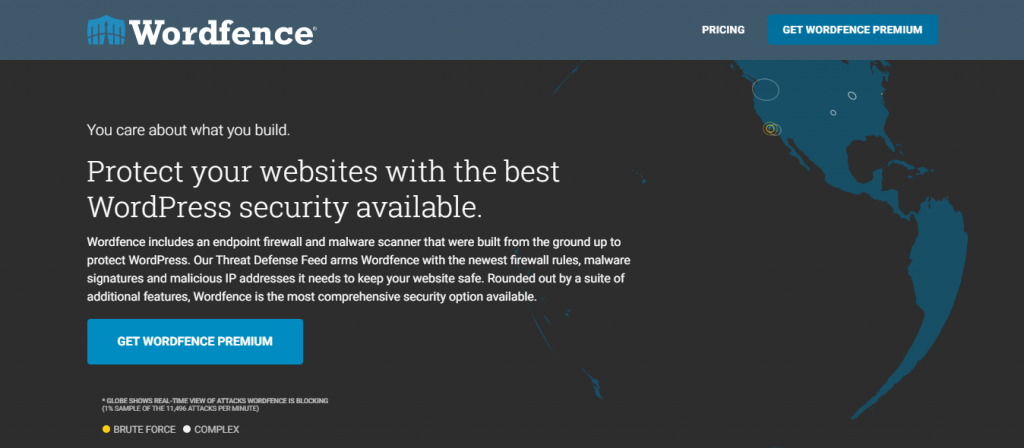
Wordfence is the most comprehensive WooCommerce WordPress security plugin available. It uses an endpoint firewall that prevents hackers from entering the site. Wordfence also protects the data and provides solid encryption, so that no threat can pass through. It also uses several key features to ensure a safe and secure platform to run your business.
Key Features
- Endpoint firewall
- Monitors live traffic
- Prevents brute force attacks by two-factor authentication
- Advanced manual blocking
- Wordfence Central manages security files and multiple sites at one place
- Security Scanner checks for malware, dangerous URLs, and hackers
- Real-time protection
- Compatible with WooCommerce
- Control over scan timing and frequency
2. BulletProof Security
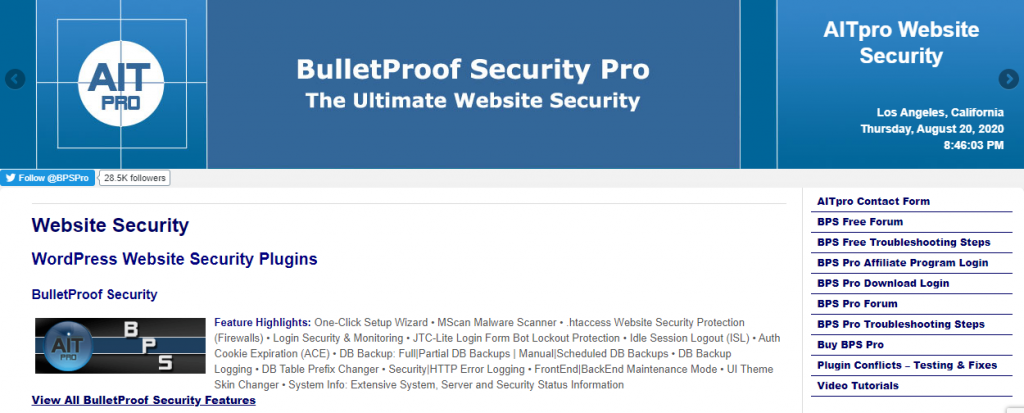
BulletProof Security protects your data and files with its extensive overlapping security measures set in place. It provides the best security for WooCommerce. BulletProof Security is effective, reliable, and easy to use. It also has numerous features including scanner, firewall, backup, and much more.
It also has a Pro version available with advanced security systems.
Key Features
- MScan Malware scanner
- DB backup
- One-click wizard setup
- Hidden plugin folders
- Auth Cookie Expiration (ACE)
- UI theme skin changer
- Htaccess Website Security Protection
- AutoRestore|Quarantine Intrusion Detection & Prevention System (ARQ IDPS) (Pro)
- Real-time monitoring (Pro)
- HTTP error logging (Pro)
Check out all features here.
3. All-in-One WP Security And Firewall

This security plugin for WooCommerce is free and among the best. It is compatible with WordPress and WooCommerce. The All-in-One WP security plugin also has security grading systems that measure the current security of your site and implements a suitable solution to tackle it. It also has many more amazing features, discussed below.
Key Features
- Changes default “Admin” username easily
- Password strength tool
- Stop user enumeration
- Login lockdown feature prevents against brute force attacks
- Force Logout after a configurable time period
- Automatically logout IP address
- Google ReCaptcha
- Automatic backup and email notifications
- Set default WP prefix
- File system security
View all features here.
4. Jetpack

Jetpack does not only provide security for WooCommerce but also has effective marketing tools and accelerators to increase performance. Moreover, it has numerous tools in a single plugin, that makes sure your site is not cluttered and is operational.
Key Features
- Compatible with WordPress
- Downtime monitoring
- Real-time backup
- One-Click fixes for common security issues
- Jetpack Scan looks for malicious malware and viruses
- Jetpack Anti-spam
- Secure authentication
- Plugin auto-updates
- Jetpack site accelerator improves speed and performance
- Code-free customization
You can also get started for free or check out their premium pricing plans here.
5. Sucuri Security
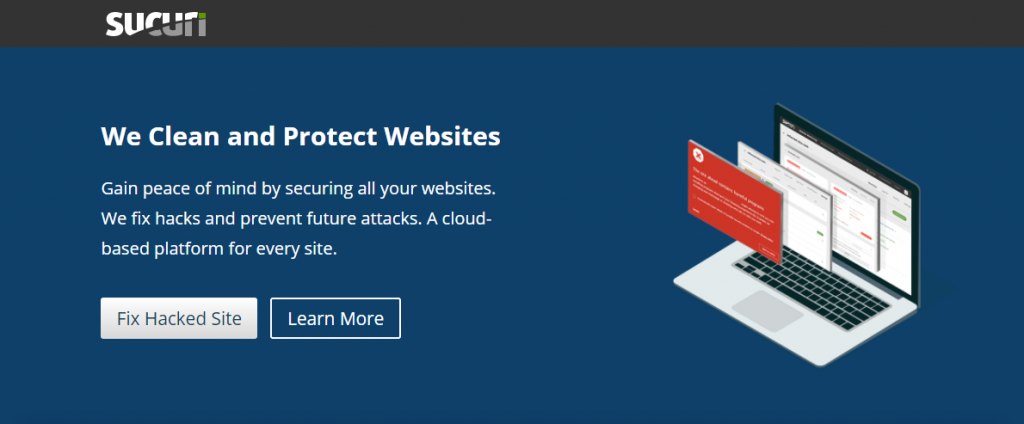
Sucuri is a WordPress compatible security extension that provides top-notch security for all websites. It also enhances your current security posture by their effective features. It is a cloud-based platform so it is suitable for all sites.
Key Features
- File integrity monitoring
- WAF protection against DDoS attacks
- Monitoring malware and malicious activity
- Various alerting options
- Optimized CDN increase page load speed
- Repair SEO spam
- Automatic and manual cleanups
- Backup and restore
You can find detailed blog posts available on their website. They also have multiple pricing plans available depending on the size of your business.
Conclusion
After opening an eCommerce store, you need to make security a priority, among other things. WordPress is the leading CMS site, and thus is the target of many malicious attacks and hackers. Most of the hacking is done automatically and thus certain steps should be taken to prevent future attacks from happening.
These preventive measures can be in the form of tips and tricks or by installing a WooCommerce security plugin. A good security extension provides advanced firewalls, real-time monitoring, auto restore and backup, and free SSL certificates. You also need to keep your WooCommerce WordPress site up to date with the latest features so that it becomes difficult to breach.
Online stores deal with confidential information and thus every security issue should be dealt with effectively and quickly. You also need to choose reliable hosting service, compatible themes, and plugins, add multiple layers of protection and secure your admin account from brute force attacks.
Thus, by taking care of these security issues, you can provide a safe and secure platform for your customers to place their orders, without their information being mishandled.



